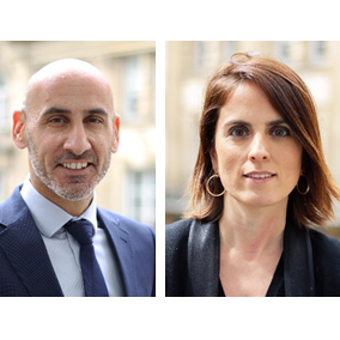Fraud Alert: Harold Brako, partner and head of Receivables Finance & Banking Litigation at Shoosmiths, believes that as we begin to emerge from recession into recovery, fraud levels will remain high
It is not unusual for recession to prompt a rise in the number of businesses resorting to fraud, and the last recession has been no different. The banks and the financing industry need to remain vigilant and ensure they have in place a fraud detection and recovery strategy that is fit for purpose.
An unfortunate consequence of a downturn in any economy is that people – many of whom would not otherwise contemplate such desperate measures – turn to fraud as a last resort in their battle to keep their businesses afloat.
Fraud is, of course, ever-present, and is found even in the good times. Indeed, many enterprises are set up with the express intention of acting as vehicles to commit fraud. But enter a recession and fraud becomes rife, with dozens of horror stories out there to prove it. Couple that with the rapid increase in IT use and more receivables being financed, and the opportunities for fraud rise dramatically.
Whilst there are no definitive figures measuring the extent of UK fraud, private sector and police estimates put it at in excess of £15billion a year, with hundreds of thousands of offences committed every year. Accordingly, businesses must take steps to ensure that they have in place robust and up-to-date fraud detection and recovery strategies.
A common fraud – and a simple way to kick-start cash flow – is through the use of ‘fresh air’ invoices (invoices raised for non-existent goods or services). In fact, many perpetrators do not view the raising of fresh air invoices as fraud at all, rather as a legitimate way to improve cash flow; while others do it with the intention of putting things right at a later date, but come unstuck as their businesses continue to flounder. And then there are those who would not normally dream of doing it, but are drawn into doing it as their firms continue to fail. It is a last throw of the dice for many companies.
Fraud was happening pre-credit crunch – way ahead of the recession – at levels that were to be expected, but now, especially with interest rates potentially due to rise, businesses need to be extra vigilant.
There is usually a post-recession levelling off followed by a decrease in all types of fraud. However, given the severity of the last recession, one suspects fraud will remain at recession high levels for some time after the green shoots of recovery have appeared. It will be because this downturn really has bitten deep, leaving lots of businesses very badly wounded.
Too many of them will continue to view fraud (particularly the easy to commit frauds like ‘fresh air’ invoicing) as a means to keep going. For some, it could become the main way in which they bring in cash. Until, of course, they are found out.
Avoid becoming a victim
There are things those in the finance sector can do if they are not to become a victim of fraud:
• audit regularly
• get to know customers
• visit customers
• get to know individuals, and the sort of characters they are
• monitor and compare sector specific trading cycles
• do not take events of default for granted
• look for danger signs:
• business owners who appear to be doing everything and working long hours, a sign they are
desperately trying to keep things afloat
• key personnel consistently using tactics to avoid you
• decreasing profits
• poor credit control systems
• lack of up-to-date management accounts
• absence of documentation to substantiate contract performance
• persistent delays in providing crucial documents
• check documentation, looking for:
• consecutively numbered invoices, but with different dates
• round figure invoicing
• invoices for similar sums
• missing documentation, particularly signed delivery notes
• undisclosed credit notes
• invoice details and delivery notes not matching.
If you have been a victim, there are recovery options and quick action may result in a full recovery or, at the very least, lessen the impact of the fraud. Losses can potentially be recovered from:
• the fraudster and those conspiring with the fraudster guarantors
• third parties who have received the proceeds of the fraud
• your customer’s security
• negligent advisors
Twitter: https://twitter.com/shoosmiths
LinkedIn: http://www.linkedin.com/company/shoosmiths
Google+: https://plus.google.com/+shoosmiths/posts












